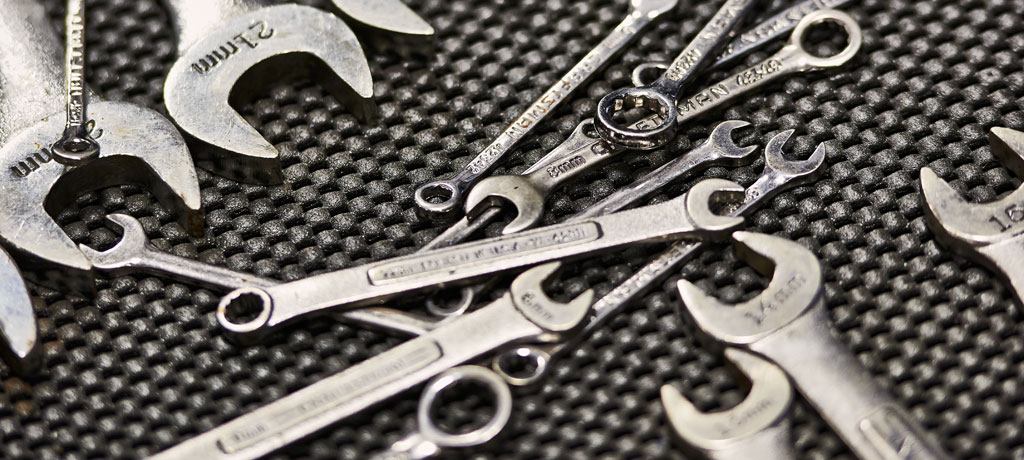Changing the oil in your car is often cited as the most crucial maintenance task you can perform. Neglecting it can lead to dire consequences. Oil’s primary role is to cut down on friction within your engine. High-quality, clean oil doing its job means your engine’s components will work well without rubbing together and causing corrosion.
With contamination, the oil loses viscosity and becomes ineffective at reducing friction. Consequently, engine components rub against each other, resulting in erosion and potential mechanical failures.
3 Steps to Check for an Oil Leak
Maybe you suspect your car is leaking fluid. If so, knowing how to check for an oil leak can provide basic diagnostics and help eliminate common issues. To check for an oil leak, follow these steps:
- Investigate the Leak: If you’ve noticed leaking fluid, place a white plastic plate beneath the car to try and catch some of the liquid. The color of the fluid provides some clues as to the leak’s origin. Clean oil is thin, slippery, amber in color, and has a chemical odor. However, if it’s been a while since your last oil change and your oil is dirty, its color might be closer to dark brown or black.
- Check Your Oil Level: Check your oil level using the engine’s dipstick. If you have low oil and your leak matches our oil description, then a leaking oil pan, degraded engine gasket, or other issue is likely.
- Visit an Expert: If you think your car is leaking oil after an oil change or may have been leaking for a while, it’s best to take it to the experts at Meineke for a thorough inspection and repair, if necessary.
Common Signs of Oil Leaks
One way to know that you’ve gone far too long without an oil change is that oil leaks from your engine. There are several common signs of oil leaks, including:
- Fluid Under Your Car: One of the typical signs of an oil leak is seeing a puddle of greasy-looking brown liquid under your car after it’s been parked for a while. (By contrast, if the liquid is pink, it’s transmission fluid; if it’s green or orange, it’s coolant.) Depending on the cause, a car can be leaking fluid on the front passenger side or front driver’s side.
- Low Oil Indicator Light: Many vehicles today have shielding underneath, which will likely catch the oil before it hits the ground. That can hide a potentially major oil leak. In this case, a low oil level indicator will be your sign of leakage.
- Oil on Your Engine: An oil-covered engine is also a sign of leakage. We recommend opening your hood every once in a while to check your vehicle’s fluids.
- Different Looking Oil: When checking your oil, pay attention to the color and consistency of the oil. It should be a black or dark brown color and oily. If it’s a bit paler and you notice milkiness or foaminess, this could be the sign of a blown head gasket.
- You Smell Burning Oil: Last but not least, when oil leaks, it can contact hot engine surfaces, which means it will burn, and you’ll be able to smell it.
So what causes leaking oil pans, gaskets, and other leaks? Usually, it’s due to degraded engine gaskets or oil seals. Sometimes these components erode over time. However, more likely than not, if you have this kind of leak, you have old, dirty oil—perhaps because you’ve not had your oil changed recently enough.
Common Causes of Oil Leaks
- Damaged Oil Gaskets or Pans: Your vehicle’s oil pan and gaskets are under the engine. Road debris can easily damage them, resulting in a leaking oil pan. The pan’s gasket usually suffers substantial wear and tear or can get damaged, causing an oil gasket leak.
- Incorrect Installations: A gasket may be improperly installed, or a valve cover gasket may be over-tightened or not evenly distributed. Another reason can be the improper attachment of the oil filter, as the engine oil flows continuously through it. If it’s loose, you can experience a leak there.
- Bad Rings or Valve Seals: Leaking rings or valve seals can also contribute to your car losing oil. However, if there are no holes in your gaskets, the oil will not make it outside the engine, so you won’t notice it, as it will get burned up in the combustion process.
Regardless of the specific cause, stopping an oil leak is urgent, so take your vehicle to your local Meineke immediately. Remember, your car’s engine needs the oil, so don’t delay addressing this issue.
Preventing Oil Leaks
Regular oil changes are the best way to prevent leaking oil pans and gaskets. A good rule of thumb is to check your manufacturer’s recommendations to determine how often you should have your oil changed. The standard for older vehicles was often no more than 3,500 miles, but newer cars can get 7,000 to 10,000 miles out of a single oil change.
Don’t wait until you see signs of an oil leak or the “low oil” light comes on—and if that light comes on, make your oil change a top priority. The light almost certainly means that whatever oil is left in your engine has lost its ability to function correctly, and your engine has undergone a great deal of wear and tear.
Schedule your next oil change at your local Meineke Car Care Center today.
FAQs
Why does my car leak oil when parked?
You may see a puddle of greasy-looking liquid on the ground after parking your vehicle. If so, you have a leaking oil pan, which usually indicates holes in your car’s oil pan or gaskets. Take your vehicle to your local Meineke straight away.
Do I need an oil change if my car leaks oil?
An oil change will not fix the leak. After your Meineke team identifies the cause of the leak and conducts the necessary repairs, they’ll top it off or change it, depending on how much oil you’ve lost.
Can I still drive with an oil leak?
It’s always advisable not to drive if your vehicle has an oil leak. Still, short-distance drives, like to a Meineke that’s less than 10 miles away, are not as risky when it comes to lowering your oil levels to a dangerous point.
Is an oil leak serious?
The severity of a vehicle’s oil leak depends on several factors, such as the location of the leak and its size. A significant oil leak will lower your oil levels faster, leading to other, more serious problems. The location matters the most for small leaks, as a leak from the front crank seal or the timing cover will shorten the life of the timing belt or engine drive belts. A valve cover gasket leak will get oil on the hot exhaust manifold, potentially causing smoke or fire.






